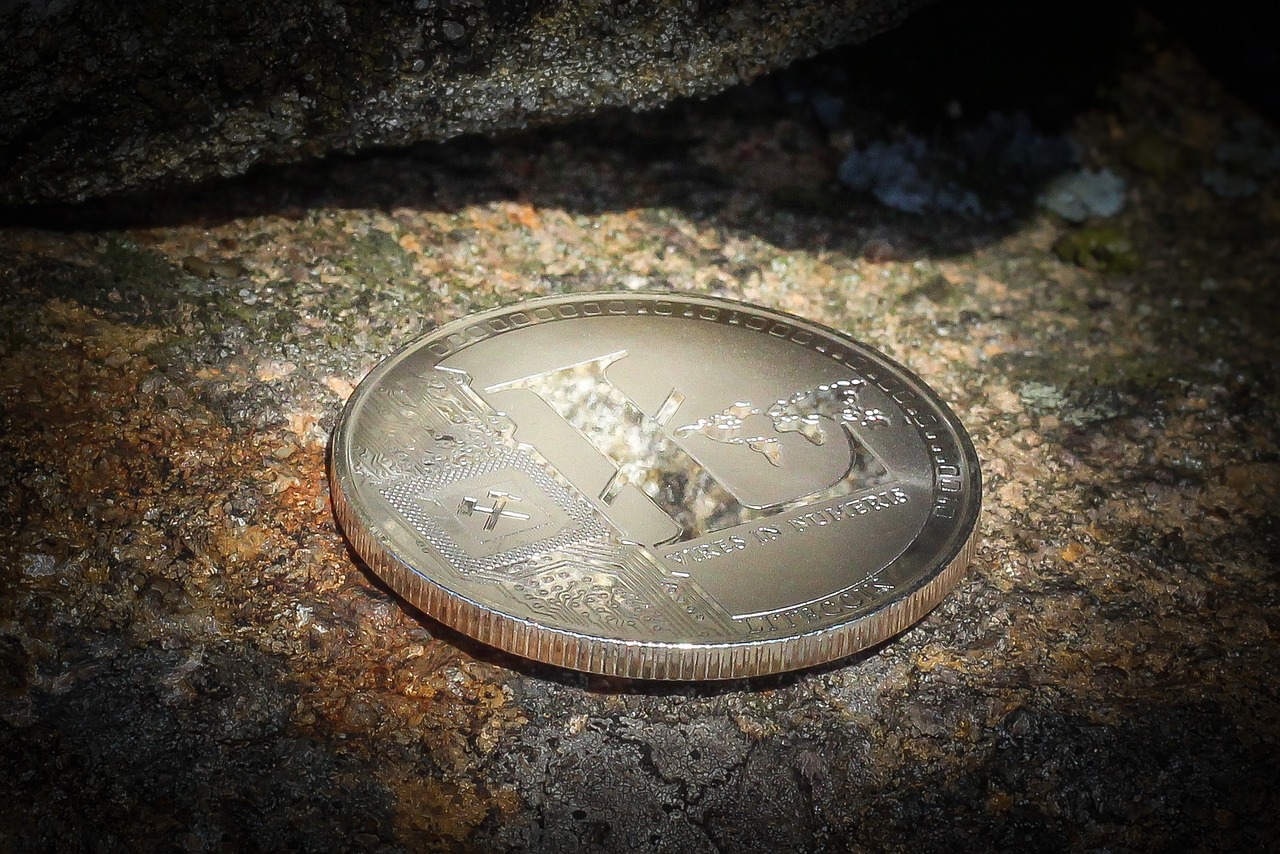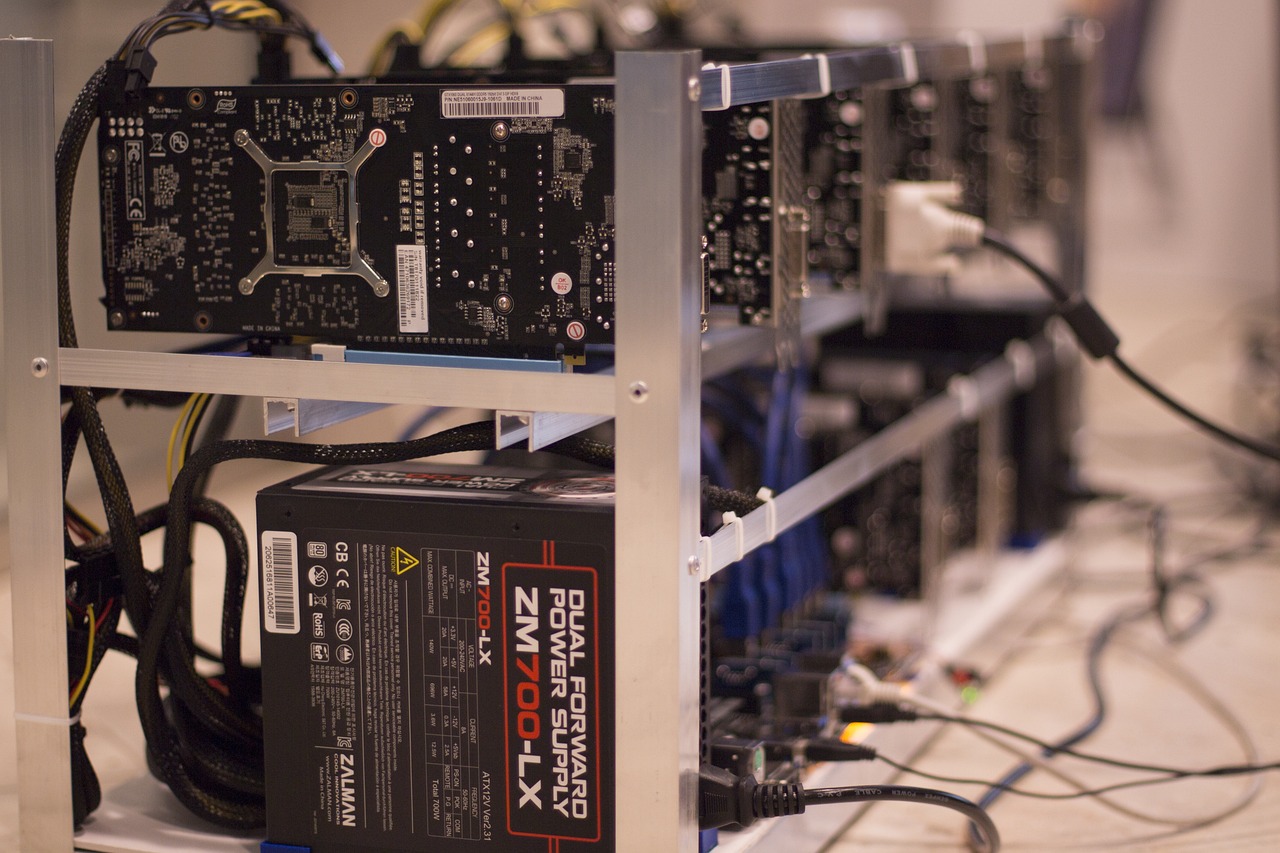How to Participate in Crypto Airdrops Safely
In the fast-paced world of cryptocurrency, airdrops have emerged as an exciting way for projects to distribute their tokens while attracting attention and engagement. However, while the prospect of receiving free tokens can be enticing, it’s crucial to approach airdrops with a healthy dose of caution. Participating in airdrops can be rewarding, but it can also lead to potential pitfalls if you're not careful. So, how do you ensure that your airdrop experience is both secure and beneficial? Let's dive into the essential steps and precautions to take when participating in crypto airdrops.
Crypto airdrops are essentially free distributions of tokens or coins to multiple wallet addresses, often as a marketing strategy to promote a new project or to reward loyal users. The purpose of these airdrops can vary widely; they might be aimed at increasing awareness, building a user base, or simply providing a way for users to engage with a new platform. There are various types of airdrops, including:
- Standard Airdrops: Tokens are distributed for free, usually requiring minimal action from participants.
- Holder Airdrops: Tokens are given to holders of a specific cryptocurrency, often as a reward for loyalty.
- Exclusive Airdrops: These are limited to users who meet specific criteria, such as signing up for a newsletter or following social media accounts.
These airdrops can benefit both the projects by increasing their visibility and the participants by providing them with free tokens that may appreciate in value. However, with great opportunity comes great responsibility; understanding the airdrop landscape is essential for ensuring a safe experience.
Thorough research is your best friend when it comes to identifying legitimate airdrops. The internet is rife with opportunities, but not all of them are worth your time or trust. Reliable sources and platforms for finding trustworthy airdrop opportunities include cryptocurrency news websites, dedicated airdrop tracking sites, and active social media channels. Always ensure that the information you’re gathering is from credible sources to avoid scams. Remember, if something seems too good to be true, it probably is!
Not all airdrops are created equal, and distinguishing between a legitimate project and a potential scam is vital. To help you in this endeavor, consider the following key indicators of a legitimate project:
- Team Credentials: Research the team behind the project. Are they experienced? Do they have a track record in the crypto space?
- Whitepapers: A well-written whitepaper is often a sign of a serious project. It should clearly outline the project's goals, technology, and tokenomics.
- Community Engagement: A strong and active community can indicate a project’s credibility. Check forums and social media for discussions about the project.
Analyzing community feedback can provide valuable insights into a project's credibility. Social media platforms and forums like Reddit and Telegram are great places to gauge public sentiment. Look for:
- Positive discussions and user experiences.
- Responses from the project team to community inquiries.
- Overall engagement levels within the community.
Understanding a project's compliance with regulations is not just a legal formality; it’s a matter of your safety as a participant. Regulatory compliance can affect airdrop legitimacy, so always check if the project adheres to local laws and regulations. This can often be found in their whitepaper or official communications. Projects that are transparent about their compliance are generally more trustworthy.
Awareness of common scams can be your first line of defense. Some prevalent fraud tactics include:
- Phishing Scams: Scammers may create fake websites that mimic legitimate projects to steal personal information.
- Fake Airdrops: Some projects may promise tokens but never deliver them, leaving participants empty-handed.
- High Entry Fees: Legitimate airdrops should not require significant upfront costs; be wary of those that do.
Now that you understand the landscape, let’s talk about how to participate in airdrops safely. Here’s a step-by-step guide:
Selecting the right wallet is crucial for airdrop participation. A secure wallet protects your assets and personal information. Look for wallets that offer:
- Two-Factor Authentication (2FA): This adds an extra layer of security.
- Private Key Control: You should have full control over your private keys.
- Reputation: Choose wallets that are well-reviewed and widely used in the community.
Safeguarding your personal information is paramount when participating in airdrops. Be cautious about what information you share. Avoid providing sensitive details like your private keys or full identification unless absolutely necessary. Always remember, legitimate projects will not ask for your private keys!
Q1: Are all airdrops safe?
A1: Not all airdrops are safe. It's essential to do thorough research to identify legitimate projects and avoid scams.
Q2: How can I find airdrop opportunities?
A2: You can find airdrop opportunities through cryptocurrency news websites, dedicated airdrop tracking platforms, and social media channels.
Q3: Do I need to pay to participate in airdrops?
A3: Legitimate airdrops typically do not require payment. Be cautious of any airdrop that asks for significant fees.
Q4: What should I do if I suspect a scam?
A4: If you suspect a scam, report it to the relevant authorities and avoid sharing any personal information.

Understanding Crypto Airdrops
Crypto airdrops are an exciting way for blockchain projects to distribute their tokens or coins for free to various wallet addresses. Imagine receiving a surprise gift in your digital wallet; that's essentially what an airdrop is! These distributions serve multiple purposes, both for the projects behind them and the participants who eagerly await the next opportunity. They can be a powerful marketing tool, helping projects gain visibility and traction in a crowded market, while also allowing users to engage with new tokens without any initial investment.
There are several types of airdrops, each designed to achieve different objectives. Some common types include:
- Standard Airdrops: These are the most straightforward, where tokens are distributed for free, often requiring only a wallet address.
- Holder Airdrops: These target existing holders of a particular cryptocurrency, rewarding them for their loyalty.
- Exclusive Airdrops: These are limited to specific groups, such as community members or early investors, often requiring participants to complete certain tasks.
- Hard Fork Airdrops: When a blockchain undergoes a hard fork, holders of the original coin may receive new tokens from the forked chain.
For participants, the allure of airdrops lies in the potential for profit without any financial risk. However, it’s crucial to approach them with a discerning eye, as not all airdrops are created equal. While some can lead to significant gains, others may simply be a ploy to gather personal information or promote low-quality projects. This is why understanding the underlying purpose of airdrops and the benefits they offer is essential for anyone looking to dive into the world of cryptocurrency.
For projects, airdrops can create buzz and attract a larger audience. By distributing tokens, they can incentivize users to engage with their platform, participate in governance, or simply spread the word about their offerings. This can lead to increased adoption and a stronger community, which are vital for the long-term success of any cryptocurrency initiative.
In summary, crypto airdrops are an innovative way to distribute tokens and generate interest in new projects. They offer a unique opportunity for both projects and participants, but it’s essential to approach them with caution. As we delve deeper into the world of airdrops, we’ll explore how to identify legitimate opportunities and protect yourself from potential scams.

Researching Airdrop Opportunities
When it comes to diving into the world of crypto airdrops, doing your homework is not just a suggestion; it's a necessity. With the crypto space growing at a rapid pace, airdrops have become a popular way for projects to distribute their tokens and attract users. However, not every airdrop is created equal, and some can be downright fraudulent. So, how do you sift through the noise to find the golden nuggets? Well, let's break it down.
First and foremost, consider leveraging reliable sources and platforms that specialize in listing airdrop opportunities. Websites like Airdrop Alert and CoinMarketCap frequently update their airdrop listings and provide crucial information about each opportunity. These platforms often include details such as the project's background, the amount of tokens being distributed, and the requirements for participation. By using these resources, you can save yourself a lot of time and potential heartache.
Another essential aspect of researching airdrop opportunities is to look for community engagement. A project that actively interacts with its community is usually more trustworthy. Check out their social media channels, forums, and even Telegram groups. Are they responsive to inquiries? Do they provide regular updates? A vibrant and engaged community can be a strong indicator of a project's legitimacy. Remember, if a project is not communicating with its audience, it might be hiding something.
Moreover, analyzing the project's roadmap can give you insights into its long-term vision. A well-structured roadmap outlines the project's goals and milestones, and it should be readily accessible on their website. If a project lacks a clear direction or has vague goals, it might be time to move on. Transparency is key in the crypto world, and a solid roadmap is a sign that the team is serious about their venture.
Lastly, don't forget to check for regulatory compliance. In an industry as volatile and unregulated as crypto, understanding a project's legal standing is crucial. Look for information regarding their compliance with local laws and regulations. If a project is making bold claims without any legal backing, it could be a red flag. Always prioritize projects that are transparent about their legal standing and are willing to share this information with potential participants.
In summary, researching airdrop opportunities is all about due diligence. By utilizing reliable sources, engaging with the community, analyzing project roadmaps, and ensuring regulatory compliance, you can significantly increase your chances of participating in legitimate airdrops. Remember, a little effort now can save you from potential losses down the line!
- What is a crypto airdrop? - A crypto airdrop is a method of distributing free tokens or coins to multiple wallet addresses, often used to promote a new project or increase its user base.
- How can I find legitimate airdrops? - Look for reputable websites that list airdrops, engage with community discussions, and check for regulatory compliance.
- Are all airdrops safe? - No, not all airdrops are safe. It's crucial to do your research and be aware of common scams.
- What information do I need to provide to participate in an airdrop? - Generally, you may need to provide your wallet address and possibly some social media account details, but be cautious about sharing sensitive personal information.

Identifying Legitimate Projects
When diving into the world of crypto airdrops, it's essential to remember that not all projects are created equal. Just like in any investment landscape, some projects shine brightly while others are nothing more than mirages. So, how do you separate the wheat from the chaff? The key lies in identifying legitimate projects through various indicators that can provide insights into their credibility.
First and foremost, team credentials are a critical factor to consider. A project backed by a team of experienced professionals with a solid track record in the blockchain space is often more trustworthy. Look for bios, LinkedIn profiles, and previous projects they have worked on. If a project’s team is anonymous or lacks transparency, it should raise a red flag. You want to invest your time and resources in projects that are open about who is behind them.
Next, a well-crafted whitepaper is another hallmark of a legitimate project. This document should clearly outline the project’s goals, technology, and roadmap. A vague or poorly written whitepaper can indicate a lack of direction or understanding of the market. When reviewing a whitepaper, pay attention to:
- Clarity of the project's objectives
- Technical feasibility of the proposed solution
- Realistic timelines and milestones
Additionally, community engagement plays a significant role in assessing a project's legitimacy. A vibrant and active community can be a strong indicator of a project's potential success. Check out their social media channels and forums to see how they interact with their audience. Are they responsive to questions and concerns? Do they provide regular updates? If the community seems engaged and supportive, it’s a positive sign.
Furthermore, it’s important to consider the project’s regulatory compliance. A legitimate project will often have clear information regarding its legal standing and how it complies with local regulations. This can include licensing, adherence to financial laws, and transparency in operations. If a project seems to be skirting around these issues, it’s best to proceed with caution.
Finally, don't underestimate the power of community feedback. Analyzing discussions on platforms like Reddit, Twitter, or specialized crypto forums can provide valuable insights into a project's reputation. Look for patterns in feedback, both positive and negative. If you notice consistent complaints or concerns, it might be a warning sign that the project is not as legitimate as it claims to be.
In summary, identifying legitimate projects in the crypto airdrop space requires a keen eye and a bit of research. By focusing on team credentials, whitepapers, community engagement, regulatory compliance, and community feedback, you can significantly reduce the risk of falling victim to scams. Remember, in the world of crypto, knowledge is your best ally!
Q1: How can I find reliable airdrop opportunities?
A1: Look for reputable crypto news websites, forums, and social media channels. Always verify the information from multiple sources.
Q2: What should I do if I suspect an airdrop scam?
A2: Report the scam to relevant authorities and avoid sharing any personal information. Trust your instincts and stay cautious.
Q3: Are all airdrops free?
A3: While many airdrops are free, some may require you to complete tasks or hold certain tokens. Always read the terms carefully.
Q4: How can I protect my wallet when participating in airdrops?
A4: Use a secure wallet, enable two-factor authentication, and avoid sharing your private keys with anyone.

Community Feedback
When diving into the world of crypto airdrops, one of the most valuable resources at your disposal is the community feedback surrounding a project. Think of it as the digital word-of-mouth that can either make or break your decision to participate. Just like you wouldn’t buy a car without checking reviews, you should never jump into an airdrop without gauging the sentiments of those who are already involved. So, how can you effectively analyze community feedback? Here are some key aspects to consider:
First off, social media platforms like Twitter, Reddit, and Telegram are treasure troves of information. On these platforms, you can find real-time discussions and opinions from current users. Look for threads that talk about the airdrop in question. Are people excited? Are they sharing their experiences? Positive vibes often indicate a project worth your time, while negative comments can serve as red flags. For instance, if you see a lot of complaints about the project's communication or delivery, it might be wise to steer clear.
Moreover, community forums such as Bitcointalk can provide deeper insights. Here, you can engage directly with project team members or other participants. Pay attention to how the team interacts with the community. Are they responsive and transparent in their communications? A project that values its community will often have a team that’s eager to answer questions and provide updates. This level of engagement is a strong indicator of legitimacy.
Additionally, consider the overall sentiment expressed in community discussions. You might even want to categorize feedback into positive, neutral, and negative to get a clearer picture. For example:
| Feedback Type | Examples | Implications |
|---|---|---|
| Positive | "The team is very responsive!" | Indicates strong community engagement. |
| Neutral | "I received my tokens, but it took a while." | May suggest issues with efficiency but not necessarily with legitimacy. |
| Negative | "I got scammed by this project!" | Strong warning sign; proceed with caution. |
Lastly, don’t forget to check for any **official announcements** or **updates** from the project team. Sometimes, community feedback can be swayed by misinformation or rumors. Validating information through official channels is essential to get an accurate understanding of the project’s status. Always cross-reference what you read with credible sources to ensure you're making informed decisions.
In summary, community feedback is like a compass guiding you through the often murky waters of crypto airdrops. By taking the time to sift through opinions, engage with fellow participants, and validate information, you can significantly reduce your risk and enhance your chances of a successful airdrop experience.
- What is a crypto airdrop?
A crypto airdrop is a method of distributing tokens or coins for free to multiple wallet addresses, often to promote a new cryptocurrency project. - How can I find legitimate airdrops?
Research is key! Use reliable platforms, check community feedback, and look for official announcements from projects. - What should I do if I encounter a scam?
Report the scam to relevant authorities and share your experience with the community to warn others.

Regulatory Compliance
When diving into the world of crypto airdrops, is not just a legal formality; it's a crucial aspect that can make or break your experience. Many enthusiasts often overlook this factor, thinking that airdrops are all about free tokens. However, understanding the legal landscape surrounding these distributions can save you from potential pitfalls. Regulatory compliance ensures that the project you are engaging with adheres to the laws and guidelines set forth by governing bodies, which can vary significantly from one jurisdiction to another.
So, why is this important? First, participating in a project that is not compliant can lead to serious repercussions. For instance, if a project is deemed illegal, the tokens you receive might not hold any value, or worse, you could find yourself in legal trouble. It's essential to do your homework and ensure that the airdrop you are considering is backed by a team that understands and respects these regulations.
To better understand how regulatory compliance works, consider the following aspects:
- Licensing: Check if the project has the necessary licenses to operate in your country. This can often be found in the project's whitepaper or official website.
- Transparency: A compliant project should openly share information about its operations, including how it plans to use the funds raised through token sales.
- Legal Consultations: Many legitimate projects consult legal experts to ensure they comply with financial regulations. This can be a good sign of a trustworthy airdrop.
It's also wise to stay updated on the evolving regulations in the cryptocurrency space, as these laws can change rapidly. Governments around the world are continuously adapting their legal frameworks to address the challenges posed by digital currencies. For example, some countries have implemented strict guidelines on token distributions to protect consumers from fraud and scams. Being aware of these changes can help you make informed decisions when participating in airdrops.
In summary, while the allure of free tokens is enticing, always prioritize projects that demonstrate a commitment to regulatory compliance. This not only protects your investment but also contributes to the overall legitimacy and growth of the cryptocurrency ecosystem.
Q1: What happens if I participate in a non-compliant airdrop?
A1: Participating in a non-compliant airdrop can lead to legal issues, and the tokens you receive may lack any real value. Always ensure the project adheres to local regulations.
Q2: How can I verify a project's compliance?
A2: Look for information in the project's whitepaper, check their licensing status, and see if they have consulted with legal experts in the cryptocurrency field.
Q3: Are there any resources to keep track of regulatory changes?
A3: Yes, websites that focus on cryptocurrency news and legal updates can be helpful. Additionally, following regulatory bodies' announcements can provide valuable insights.

Common Airdrop Scams
In the thrilling world of cryptocurrencies, airdrops can feel like a treasure hunt, with the promise of free tokens sparking excitement. However, just like any treasure hunt, there are traps and pitfalls that can lead you astray. Understanding the common scams associated with airdrops is essential to navigating this landscape safely. One prevalent scam is the fake airdrop, where malicious actors create a false narrative around an airdrop that doesn’t exist. They may use the name of a well-known project to lure unsuspecting participants, often requiring them to send a small amount of cryptocurrency as a 'processing fee'. Remember, if an airdrop asks for your funds upfront, it’s a red flag!
Another common tactic is the phishing scam. In this scenario, scammers create websites that mimic legitimate airdrop sites, enticing users to input their private keys or recovery phrases. This is akin to leaving the front door of your house wide open while you go out for a stroll. Always double-check URLs and ensure you are on the official site before entering any sensitive information.
Moreover, there are scams that leverage social media. Scammers often create fake accounts on platforms like Twitter or Telegram, impersonating reputable projects and promising airdrops for followers or retweets. This approach not only deceives users but also spreads misinformation within the community. A good rule of thumb is to verify any airdrop announcements through official channels, such as the project's website or verified social media accounts.
To further illustrate the types of scams, here’s a quick overview:
| Type of Scam | Description | Red Flags |
|---|---|---|
| Fake Airdrop | Non-existent airdrops using the name of real projects. | Requests for payment or personal information. |
| Phishing Scam | Fake websites mimicking real airdrop sites. | Suspicious URLs and requests for private keys. |
| Social Media Impersonation | Fake accounts promising airdrops for engagement. | Unverified accounts and unsolicited messages. |
Staying informed and vigilant is your best defense against these scams. Always conduct thorough research before participating in any airdrop and trust your instincts. If something seems too good to be true, it probably is! Protecting your assets should be your top priority, and by being aware of these common scams, you can enjoy the benefits of airdrops without falling victim to fraud.
- What is an airdrop? Airdrops are free distributions of tokens or coins to multiple wallet addresses, often used as a marketing strategy by blockchain projects.
- How can I identify a legitimate airdrop? Look for clear project information, active community engagement, and official announcements on verified channels.
- What should I do if I fall for a scam? Report the scam to the relevant authorities and consider changing your wallet addresses or security settings.

Steps to Participate Safely
Participating in crypto airdrops can be an exciting way to earn free tokens, but it’s essential to navigate this landscape with caution. Think of it like walking through a minefield—one wrong step and you could be in trouble. To ensure a secure and beneficial experience, follow these crucial steps that will not only protect your assets but also enhance your chances of success.
First and foremost, using a secure wallet is non-negotiable. A secure wallet acts as a fortress for your cryptocurrency, safeguarding your tokens against potential threats. When selecting a wallet, look for features such as two-factor authentication, backup options, and compatibility with various tokens. Hardware wallets, like Ledger or Trezor, are often recommended for their enhanced security. They store your private keys offline, making it significantly harder for hackers to access your assets. In contrast, software wallets, while more convenient, can be vulnerable to online attacks. Therefore, always weigh the pros and cons before making a choice.
Next, protecting your personal information is paramount. When participating in airdrops, you might be asked to provide certain personal details. However, it’s crucial to discern what’s necessary and what’s not. Legitimate projects often require minimal information, such as your wallet address and possibly an email. Be cautious about sharing sensitive data like your private keys or passwords. If a project asks for these, it’s a major red flag. A good rule of thumb is to think about it this way: if you wouldn’t share it with a stranger on the street, don’t share it online.
Moreover, always ensure that the website you are visiting is legitimate. Phishing is a common tactic used by scammers to trick unsuspecting participants into giving away their information. Before entering any personal details, double-check the URL and look for signs of security, such as HTTPS and a padlock icon in the address bar. If you receive unsolicited messages or emails about airdrops, be skeptical. Scammers often impersonate legitimate projects to lure victims into their traps.
In addition to these precautions, it’s wise to stay informed about the latest trends and developments in the crypto space. Join forums, follow credible influencers, and subscribe to newsletters that focus on cryptocurrency. By immersing yourself in the community, you’ll gain insights into upcoming airdrops and learn about potential scams. Knowledge is power, and in the fast-evolving world of crypto, staying updated can make all the difference.
Lastly, consider using a separate wallet specifically for airdrops. This way, even if something goes awry, your primary assets remain untouched. It’s like having a backup parachute when skydiving—better safe than sorry! By isolating your airdrop tokens, you can minimize risk while still enjoying the potential rewards of participating in various projects.
In conclusion, participating in crypto airdrops doesn’t have to be a risky endeavor. By following these steps—using secure wallets, protecting your personal information, verifying websites, staying informed, and isolating your assets—you can significantly enhance your safety and experience in the crypto landscape. Remember, in the world of airdrops, caution is your best friend!
Q: What is a crypto airdrop?
A: A crypto airdrop is a process where a project distributes free tokens or coins to multiple wallet addresses, often to promote a new cryptocurrency or engage with the community.
Q: Are all airdrops legitimate?
A: No, not all airdrops are legitimate. It’s crucial to conduct thorough research to identify credible projects and avoid scams.
Q: How can I find reliable airdrop opportunities?
A: You can find reliable airdrop opportunities by following trusted cryptocurrency news websites, joining relevant forums, and participating in social media groups focused on crypto.
Q: Do I need to pay to participate in airdrops?
A: Legitimate airdrops typically do not require payment. Be wary of any project that asks for money in exchange for tokens.
Q: What should I do if I suspect a scam?
A: If you suspect a scam, report it to the relevant authorities, and avoid engaging with the project further. Trust your instincts and prioritize your security.

Using a Secure Wallet
When it comes to participating in crypto airdrops, the importance of using a secure wallet cannot be overstated. Think of your wallet as the vault for your precious digital assets; if it's not secure, you're essentially leaving the front door wide open for potential thieves. So, what makes a wallet secure? First and foremost, you want to look for wallets that offer strong encryption and two-factor authentication. These features act as a double layer of protection, making it significantly harder for hackers to gain access to your funds.
There are several types of wallets available in the market, each with its own set of advantages and disadvantages. For example, hardware wallets are considered one of the safest options because they store your private keys offline, away from potential online threats. On the other hand, software wallets are more convenient for daily transactions but can be vulnerable to malware attacks. It’s essential to assess your needs carefully before deciding which type of wallet is right for you.
Here’s a quick comparison of the different types of wallets:
| Type of Wallet | Security Level | Convenience | Best For |
|---|---|---|---|
| Hardware Wallet | High | Low | Long-term storage |
| Software Wallet | Medium | High | Daily transactions |
| Paper Wallet | High | Low | Cold storage |
| Mobile Wallet | Medium | High | On-the-go transactions |
When selecting a wallet, also consider the user interface and customer support options. A wallet that is easy to navigate will save you a lot of headaches, especially when you're in a hurry to claim an airdrop. Additionally, responsive customer support can be a lifesaver if you encounter issues or have questions regarding your wallet's functionality.
Lastly, remember that your wallet is only as secure as the practices you put in place. Always keep your recovery phrases and private keys confidential. Never share them with anyone, not even with those who claim to be from a legitimate airdrop project. If someone asks for your private key, it's a major red flag—run the other way!
In summary, using a secure wallet is your first line of defense in the world of crypto airdrops. By choosing the right type of wallet and implementing best security practices, you can significantly lower your risk and enjoy a safer airdrop experience.
- What is a crypto wallet? A crypto wallet is a digital tool that allows you to store, send, and receive cryptocurrencies securely.
- Are hardware wallets really safer than software wallets? Yes, hardware wallets are generally considered safer because they store your private keys offline, making them less susceptible to hacking.
- Can I use multiple wallets for different airdrops? Absolutely! Using multiple wallets can help you manage your assets better and minimize risks.
- What should I do if I lose my wallet? If you lose access to your wallet, you can recover it using your recovery phrase, provided you have it stored securely.

Protecting Personal Information
In the world of cryptocurrency, where anonymity is often celebrated, protecting your personal information is more crucial than ever. Participating in airdrops can be an exciting venture, but it also opens the door to potential risks if you're not careful. So, how can you ensure your personal data remains safe while still enjoying the benefits of airdrops? Let's dive into some essential practices that can safeguard your information.
First and foremost, it's vital to understand what personal information you should keep private. When engaging in airdrops, you may be asked to provide your email address, wallet address, or even social media accounts. However, sharing too much can expose you to scams and phishing attempts. Always remember: less is more. Only provide the necessary information required for participation. If an airdrop asks for sensitive details like your private keys, it's a huge red flag—run in the opposite direction!
Another effective strategy is to create a separate email address specifically for airdrop registrations. This way, you can compartmentalize your online activities and reduce the risk of your primary email being bombarded with spam or falling into the wrong hands. Additionally, consider using a secure password manager to generate and store complex passwords for each of your accounts. This practice not only enhances your security but also minimizes the chance of falling victim to credential stuffing attacks.
Moreover, be cautious about the platforms you use to participate in airdrops. Always opt for reputable websites and projects with a solid track record. If you're unsure, take a moment to research the project and its team. Look for reviews and feedback from the community to gauge its legitimacy. Remember, if something seems too good to be true, it probably is!
When it comes to social media, think twice before sharing your participation in airdrops publicly. While it's tempting to showcase your crypto adventures, sharing too much can attract unwanted attention from malicious actors. Instead of broadcasting your activities, consider joining private groups or forums where you can discuss airdrops with like-minded individuals while maintaining a level of privacy.
Lastly, always keep your devices secure. Regularly update your operating systems and software, as these updates often contain critical security patches. Consider using antivirus software and a virtual private network (VPN) to add an extra layer of protection when accessing airdrop sites. Just like wearing a helmet while riding a bike, these measures can significantly reduce your risk of falling victim to online threats.
In summary, protecting your personal information during airdrop participation is all about being proactive. By limiting the information you share, using secure platforms, and staying vigilant, you can enjoy the benefits of airdrops without compromising your privacy. Remember, in the world of crypto, your data is as valuable as the coins you seek!
- What is an airdrop? An airdrop is a method of distributing tokens or coins for free to multiple wallet addresses, often used for marketing purposes or to reward loyal users.
- How can I tell if an airdrop is legitimate? Look for indicators such as a reputable project team, positive community feedback, and regulatory compliance. Always do your research!
- Should I share my private keys for an airdrop? Absolutely not! Never share your private keys with anyone; this information is crucial for the security of your wallet.
- Is it safe to use public Wi-Fi for participating in airdrops? It's advisable to avoid public Wi-Fi when participating in airdrops. Use a VPN to secure your connection if you must use a public network.
Frequently Asked Questions
- What are crypto airdrops?
Crypto airdrops are free distributions of tokens or coins to various wallet addresses. They serve as a marketing strategy for projects to spread awareness and encourage participation.
- How can I find legitimate airdrop opportunities?
To find legitimate airdrop opportunities, you should rely on trusted platforms and sources such as official project websites, cryptocurrency forums, and social media channels dedicated to crypto news.
- What should I look for in a legitimate airdrop project?
Key indicators of a legitimate airdrop project include a credible team, a well-documented whitepaper, and active community engagement. Always do your homework before participating!
- How can community feedback help in assessing a project?
Community feedback can provide valuable insights into a project's credibility. Analyzing discussions on social media and forums can help you gauge public sentiment and identify potential red flags.
- What are some common airdrop scams to watch out for?
Common airdrop scams include phishing attempts, requests for private keys, and offers that seem too good to be true. Always be cautious and skeptical of unsolicited offers.
- How do I participate in airdrops safely?
To participate safely, use a secure wallet, protect your personal information, and only share what is necessary. Always verify the legitimacy of the airdrop before engaging.
- What features should I look for in a secure wallet?
When choosing a secure wallet, look for features like two-factor authentication, a strong encryption protocol, and a good reputation within the crypto community.
- How can I protect my personal information during airdrop participation?
Be mindful of the information you share. Avoid providing sensitive personal data, and use disposable email addresses when signing up for airdrops to maintain your privacy.



















